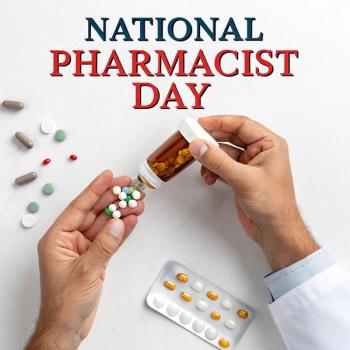
Pharmacists push for provider status and PBM overhaul as IRA policies squeeze pharmacies—what it means for access to vaccines, PrEP, and vital meds.

Pharmacists push for provider status and PBM overhaul as IRA policies squeeze pharmacies—what it means for access to vaccines, PrEP, and vital meds.

If signed by President Trump in time to avoid a government shutdown, HR 7148 has potential to enforce significant change in the prescription drug supply chain.

Community pharmacies continue to operate in unchartered territory regarding Medicare drug price negotiations as the new IRA statute becomes an unavoidable reality for business operations.

Alyssa Billingsley, PharmD, discusses the FDA’s prescription to over-the-counter drug development process and what it means for patients and pharmacies.

PQA releases the SDOH Resource Companion Guide, highlighting successful partnerships and strategies to address health-related social needs effectively.

Consultant pharmacists enhance long-term care by integrating vaccination strategies, educating staff, and addressing the unique needs of older adults.

Buchanan Ingersoll & Rooney’s Dae Lee, PharmD, Esq, CPBS, and Lucas Morgan, Esq, explore the evolving world of PBMs within the supply chain as well as the role of state boards of pharmacy.

Representatives from the American Society of Consultant Pharmacists joined Drug Topics to discuss the day 1 reality of the Medicare Drug Price Negotiation Program.

President of the Pennsylvania Pharmacists Association, John DeJames, shared his organization’s goals for advancing the pharmacy profession.

Mark Ciarlone, PharmD, business development manager at Liberty Software, discusses pharmacy management systems that drive results.

Outcomes’ Jon Carlson and Nic Bernabe discuss PillCount, Rx30, and the technology making a difference behind community pharmacy counters—among many other pharmacy solutions.

Meagan Brown, PharmD, BCACP, discusses her career journey in various pharmacy roles during National Pharmacist Day, January 12.

In part 3 of our interview with Susan Thomas, RN, she focused on the pharmacist’s role in her organization’s creation of a newly launched women’s health benefit program.

Susan Thomas, RN, joined Drug Topics to discuss current gaps in women’s health and how pharmacists are stepping in to counsel in this space more than ever before.

In part 3 of our interview, Jennifer Flynn, CPHRM, flips the script on potential harms in using social media and explores how pharmacists can use it to advance their career.

Jennifer Flynn, CPHRM, vice president of health care risk management at the Healthcare Provider Service Organization, discusses pharmacists’ roles in patient privacy.

Pharmacists are expanding their roles in reproductive health, overcoming barriers to provide essential services and improve community care.

In part 3 of our interview with Kenric B. Ware, PharmD, MBA, AAHIVP, he discusses the best approaches for addressing HIV care and prevention stigma.

Pharmacists play a crucial role in educating patients about birth control, improving access to care, and addressing maternal health challenges in Arkansas.

Arkansas pharmacists enhance women's health by implementing new protocols for oral contraceptive prescriptions, improving patient care and confidence.

Kenric B. Ware, PharmD, MBA, AAHIVP, presents persistently common stigmas in HIV care and prevention from a recent NPhA webinar.

Health care professionals emphasize the importance of monitoring blood glucose, lifestyle changes, and patient education for effective diabetes management.

Discover how pharmacy teams are advancing stewardship, opioid safety, and survey readiness through clinical surveillance, competency-based education, and emerging AI tools that help reduce ADEs and improve patient outcomes.

Pharmacists play a crucial role in diabetes care by educating patients on insulin management and medication adherence for better health outcomes.

Diana Isaacs, PharmD, BCPS, BCACP, BC-ADM, CDCES, discussed potential safety concerns and the pharmacist’s role in managing insulin.

Ron Lanton III, Esq, provides nuance to the current state of pharmacy sustainability and how the MFN drug pricing policy could impact the industry.

During her time at ASHP Midyear 2025, Diana Isaacs, PharmD, BCPS, BCACP, BC-ADM, CDCES, returned to discuss all available insulin pump options.

Ron Lanton III, Esq, discusses the revamped version of the Trump Administration’s MFN drug pricing policy and why his second term may yield different outcomes.

Prateek Bhatia, PhD, discusses barriers to accessing infusion center services and how the pharmacist can alleviate patient challenges.

McKesson’s Ginger Thorpe discusses the gaps and opportunities in specialty pharmacy’s approach toward care coordination within health systems.